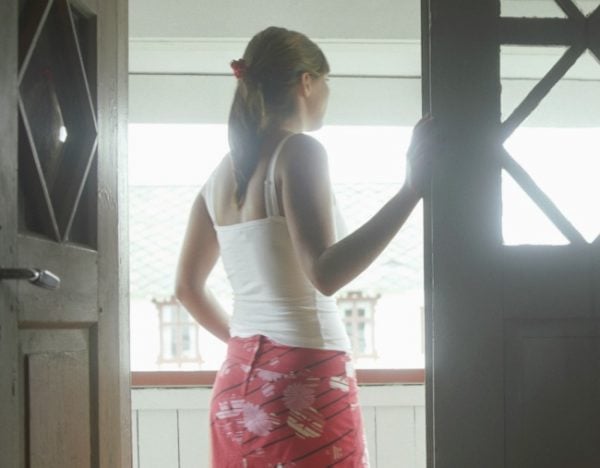Christmas lunch…
A flurry of activity unfolds around you. The work is done and you sit quietly, containing yourself. Watching the children play, you try to be joyful but the tension is building in the pit of your stomach. The conversation revolves around parenting, the funny anecdotes, the hard bits, the sleepless nights…
You gently press your teeth to your bottom lip, and hold. You breathe deeply to suppress the feelings. A kindly older relative leans across the table and inquires, “When are you planning to have children dear?”
How do you begin to answer? How do you explain that you’ve upended your life? That you’ve turned yourself inside out trying to have kids, only to find yourself crying on the loo each month, your period a stark reminder of yet another failed attempt to become a mum.
You’re not sure how long you can keep going, yet you can’t imagine a future without kids. The depth of the love you feel for your unborn children is mirrored by this searing pain. You feel invisible, stuck, ashamed, alone… You implode, and then you just get angry.
Sound familiar?
You’re not alone.
If this is your story, you are experiencing something that is almost invisible in mainstream culture: Childlessness grief.
Contrary to the image of the carefree or career driven childless women, the vast majority of women arrive at childlessness by infertility and circumstance, not by choice.
LISTEN: A story about miscarriage. Post continues below.



Top Comments
You hear heartbreaking stories about poor children murdered or brutalized by people not fit to be parents and then theres you with so much love to give and who would love to have children to cherish.Life is indeed not fair at times. May I wish you all the best for christmas and I shall pray that in time you may be blessed with alittle one or ones to love with that big heart of yours
Thank you for your heartfelt comment and blessings. We also hope childless women can develop meaningful relationships with children as fits their grief journey and aspirations. In relation to child abuse, we tend not to put child protection issues into the same discussion as childlessness grief. This is in order to avoid creating a conversation that judges parents. Sometimes when we go down the path of fair or unfair, it can cast us as victims or judgers. Childlessness grief can manifest as anger and grief for our belief in a fair universe. I worked in child protection for many years, some parents/carers really struggle and need support, others are downright abusive and need to be stopped. It's great that our community sees fit to fund child protection services and support for families, we hope they can continue to improve. Many childless women go down the path of working in child protection services, fostering and other pathways to meaningful relationships with kids. For many women, it's not the same as being a mother and the sadness around this may be lifelong. Thank you for your kind thoughts. sx
A great article that really explains what it is like to be childless not by choice. One of the biggest challenges is that infertility and being CNBC is a disenfranchised grief. People don't understand how it is possible to be grieving for something that you have never had. Both my parents died when I was in my mid-twenties. Shortly after that step-father and a step-sister also died. So I have experienced a lot of bereavement in my life. The grieve that I have suffered due to infertility has lasted far longer. After my parents died I had happy memories that eventually eased the pain I was experiencing. I learnt to laugh again and enjoy life. There are no such happy memories in infertility.
The pain lasts far longer and can reoccur at any time. I spent eight years of dealing with my closest friends announcing another pregnancy and hoping that I would find the strength to be happy and supportive of them as another layer of my hope of motherhood died. Two years ago I felt that I hard turned a corner and that pregnancy announcements could be celebrated. Then, last year, I experienced my first "WOO HOO HOOO I'm going to be a Grannie" announcement. This was a totally new experience, with a complete new set of lost dreams and never to create memories that need to be grieved for.
The grief that infertility and being childless not by choice cannot be underestimated and the work that people like Sarah do to help those grieving is invaluable!